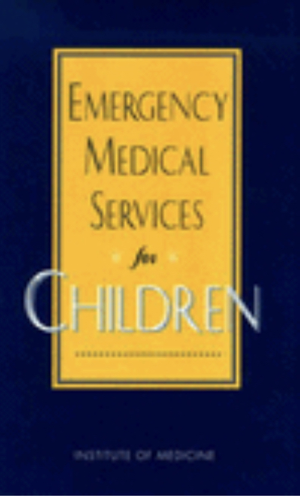Details

Overview
How can we meet the special needs of children for emergency medical services (EMS) when today's EMS systems are often unprepared for the challenge? This comprehensive overview of EMS for children (EMSC) provides an answer by presenting a vision for tomorrow's EMS-C system and practical recommendations for attaining it.
Drawing on many studies and examples, the volume explores why emergency care for children—from infants through adolescents—must differ from that for adults and describes what seriously ill or injured children generally experience in today's EMS systems.
The book points the way to integrating EMS-C into current emergency programs and into broader aspects of health care for children. It gives recommendations for ensuring access to emergency care through the 9-1-1 system; training health professionals, from paramedics to physicians; educating the public; providing proper equipment, protocols, and referral systems; improving communications among EMSC providers; enhancing data resources and expanding research efforts; and stimulating and supporting leadership in EMSC at the federal and state levels.
For those already deeply involved in EMS efforts, this volume is a convenient, up-to-date, and comprehensive source of information and ideas. More importantly, for anyone interested in improving the emergency services available to children—emergency care professionals from emergency medical technicians to nurses to physicians, hospital and EMS administrators, public officials, health educators, children's advocacy groups, concerned parents and other responsible adults—this timely volume provides a realistic plan for action to link EMSC system components into a workable structure that will better serve all of the nation's children.
National Academies of Sciences, Engineering, and Medicine. 1993. Emergency Medical Services for Children. Washington, DC: The National Academies Press. https://doi.org/10.17226/2137.